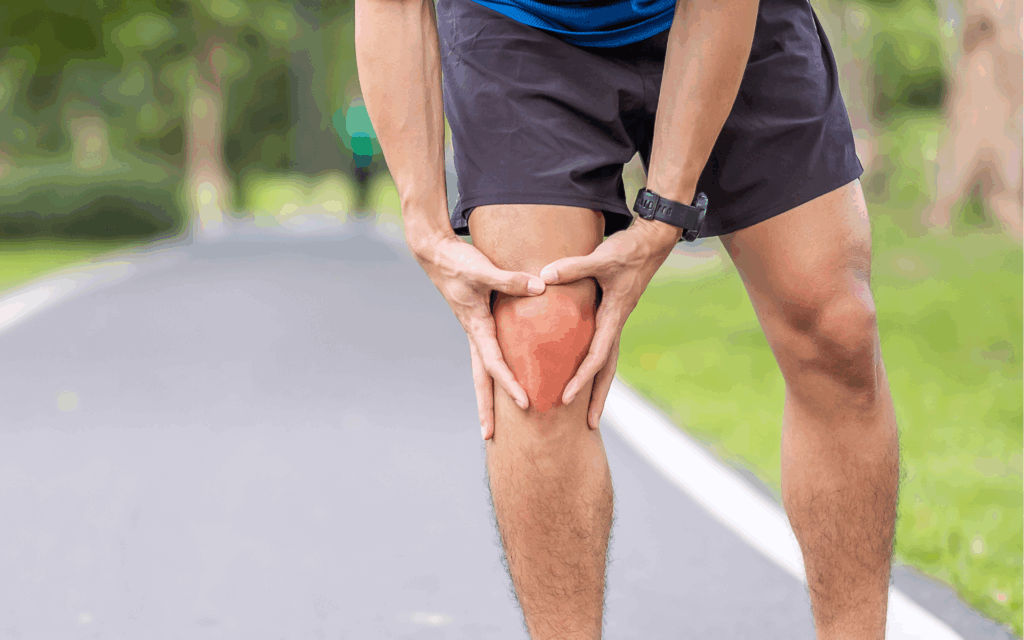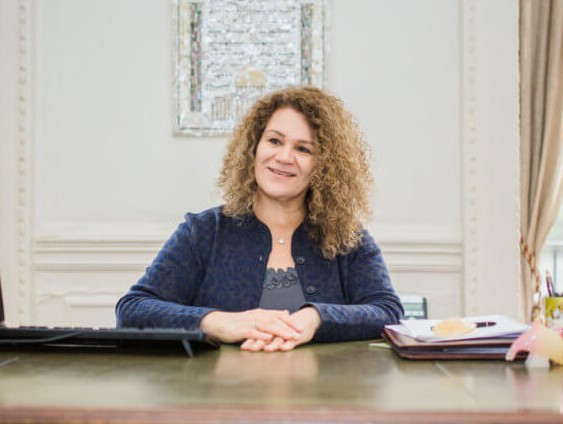This is Tony’s story. He came to see us a few months ago with low-level knee pain that was constant and got worse when at work. Names have been changed, and patients have given permission for their story to be shared.
My Journey Through Misdiagnosis & Recovery
I’ve always been active and completed the London marathon in 2020. In 2022, I started experiencing pain in both knees. It wasn’t severe, probably 4/10, but I felt it all of the time, and it caused me concern that I had developed arthritis or another problem due to all of the running I had been doing.
I went first to my NHS GP, who advised me to take anti-inflammatories, which I did, and the pain did improve. But it bothered me that when I did not take the anti-inflammatories, the pain came back, and it confused me too, because it was constant. I was also worried about taking anti-inflammatories longer term and the risk of developing stomach ulcers.
After 6 months of this, I went back to my GP and explained that it was causing me anxiety, that I had stopped exercising out of fear of doing damage to my knees. I was referred then for an X-ray, which came back normal. Although I was relieved, I was still without any answers and didn’t know what to do.
I decided at this stage to start properly researching, and Dr Google unfortunately made my anxiety much worse! My wife suggested that we go private to try to get answers. The first clinic we tried referred me for an MRI, which was helpful, but only showed mild inflammation and no other structural causes for the pain. The doctor was kind but at a loss as to what might be causing it, but referred me to Dr Enam Abood, who he said was a “great detective”.
We arrived at Dr. Abood’s clinic just off Harley Street. It’s a lovely building, and the receptionists were very friendly and warm. I felt immediately at ease.
Dr. Abood greeted me with a smile and listened with empathy and care when I told her about the pain and how it’s been affecting me. She didn’t diminish the issue, and I didn’t feel rushed; the appointment lasted for an hour!
She asked me questions that the other doctors did not, about my diet, what might have changed in recent years in how I ate, whether I was experiencing any stomach issues or bloating, and about my stress at work and home. She asked me things that felt a bit “out there” at the time, considering I was coming to her about my knees!
I told her that in 2022, I started on the keto diet because I had gained a little weight, and it was all the rage in the fitness media. I was eating more protein and, in the evening, snacking on cheese rather than crisps or salty nuts. When I told her this, she raised her eyebrows and asked about any stomach issues. I told her I’d been a bit more bloated, sometimes tired, and had brain fog most mornings. I also sometimes had loose stools.
She took some blood tests and we said goodbye.
The Surprising Impact of Dairy Intolerance
A few days later, I returned for my follow-up, and all the test results were back. My blood results showed that I had inflammation in my system, my cholesterol was higher than it should be, and my liver was a bit unhappy. But the test result that was the biggest surprise was that I was intolerant to dairy!
I have been eating dairy my whole life, but Dr. Abood explained that our tolerance can change over time and that the quantity and frequency can impact our symptoms. She explained that regularly eating something we are intolerant to creates low-grade chronic inflammation of our system and “leaky gut,” which I later found very interesting.
She was convinced that stopping dairy consumption would stop my chronic knee pain. I admit I was very sceptical and laughed at the idea initially. But I had tried everything else, so I thought this might be it.
After stopping cheese and dairy, my knee pain was gone in less than two weeks. My tummy symptoms and brain fog also cleared up. I felt like a new person.
It’s really funny to me now that all of that anxiety and difficulty I experienced came down to some cheddar in the evening. Still, I’m so grateful to no longer have to worry, to get back to moving, running, and enjoying life.















